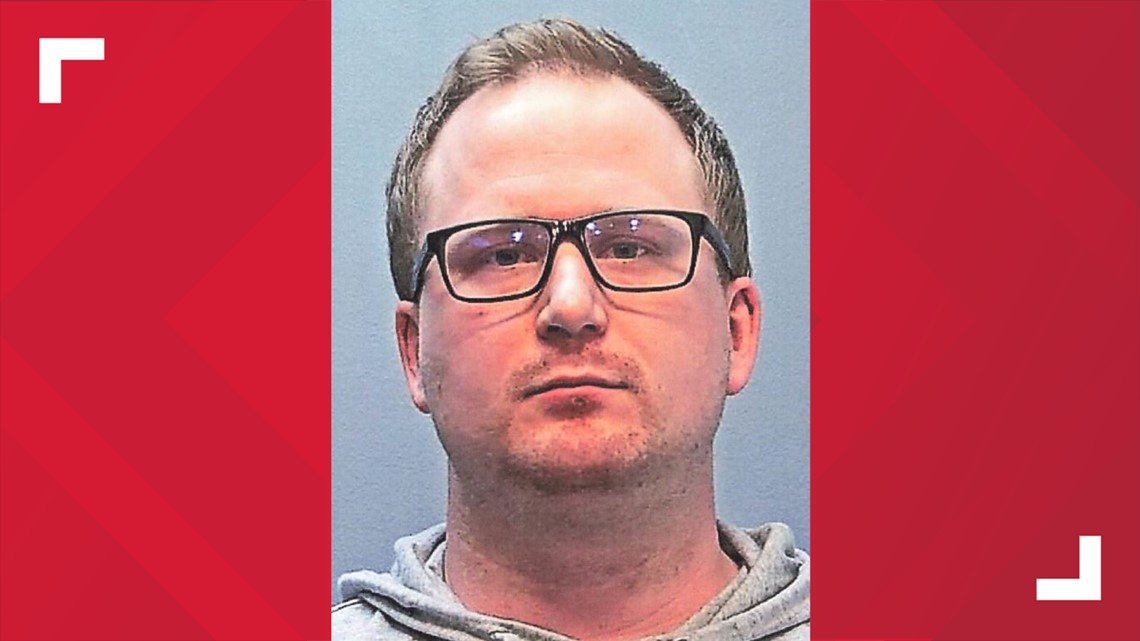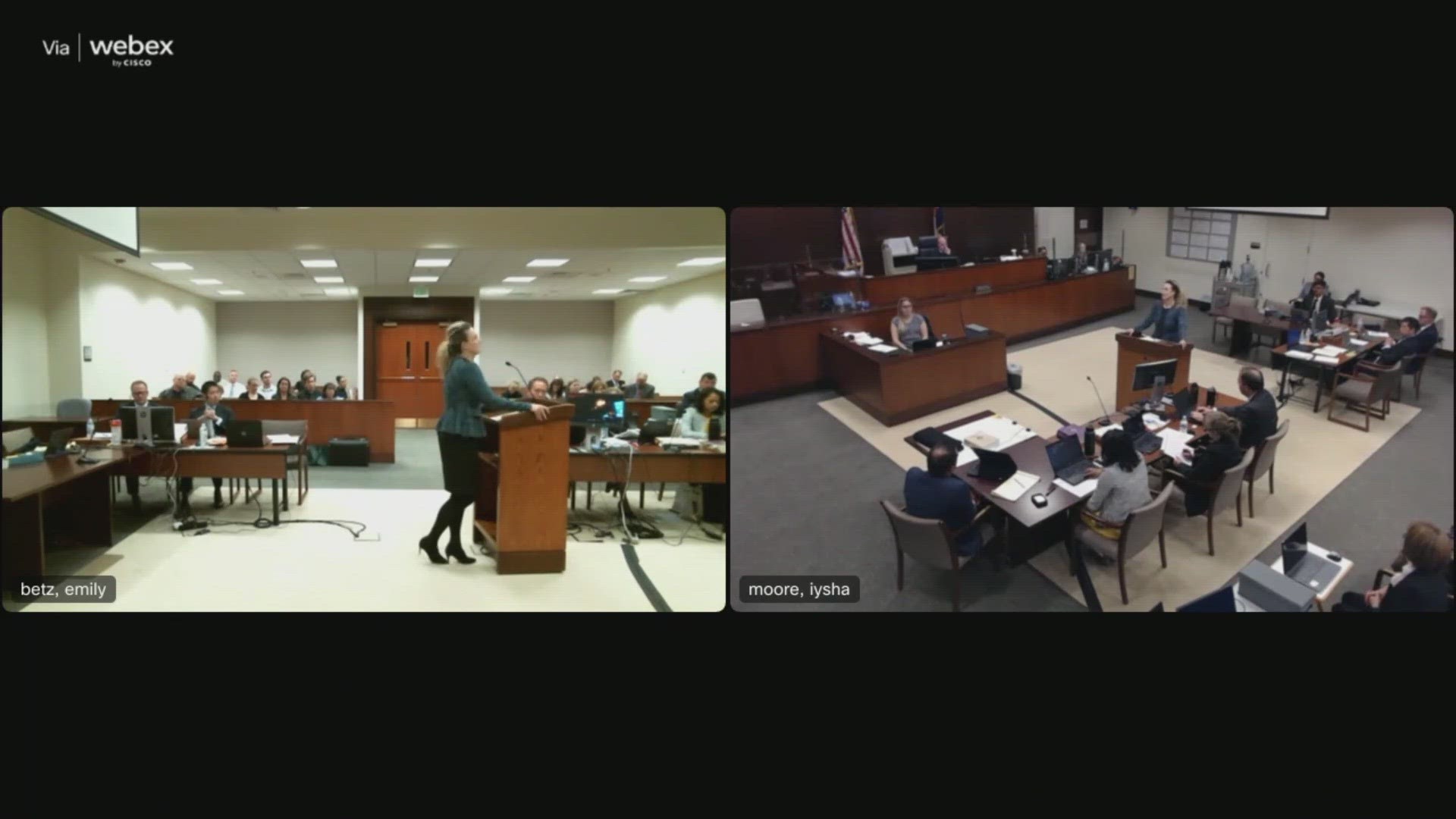BRIGHTON, Colo. — During opening statements Tuesday in the case of a suspended Aurora police officer accused of wrongdoing in the 2019 death of Elijah McClain, a prosecutor and a defense attorney agreed on several points.
Neither disputed that the officer on trial, Nathan Woodyard, put McClain in a neck hold that rendered him unconscious for a time – a hold that can have life-threatening consequences.
Neither disputed that his death was a tragedy – or that he should still be alive.
Neither disputed that a dose of the sedative ketamine killed him.
But prosecutor Ann Joyce said Woodyard – and other first responders – set off a cascading series of medical issues when they confronted, subdued and restrained McClain as he walked along an Aurora street on Aug. 24, 2019, wearing a ski mask that covered his face. Their actions cut oxygen to his brain, caused him to vomit and then inhale some of it, and left him struggling to breathe before a paramedic injected that sedative, she said.
“They didn’t listen to him when he said, ‘I can’t breathe,’” Joyce told the jurors. “They did not listen when he was drowning in his own vomit. And they certainly didn’t pay attention as he got quieter and quieter and quieter.”
Instead, they repeatedly violated their own training, treated McClain with “callousness and indifference,” and failed to act as he begged for help, Joyce said.
It was that failure, she said, “that caused Mr. McClain to die.”
“The tragedy is incomprehensible,” defense attorney Megan Downing said. “The evidence will take a toll on you. It will make you angry. It should make you angry.”
But Woodyard, she said, interacted with McClain for only about five minutes and had no role in the decision by paramedics to administer what she described as a “lethal” dose of ketamine.
“Nothing that Officer Woodyard did caused Mr. McClain to die,” she said. “None of the actions he took. None of the force he used. He’s not guilty.”
Woodyard, the first to respond after a 911 caller reported that McClain was wearing a mask and acting “sketchy,” faces a single count of reckless manslaughter.


Woodyard and fellow officers encountered McClain as he walked home with three cans of iced tea he had purchased at a nearby convenience store. Body camera footage showed that Woodyard ordered him to stop, put his hands on McClain within eight seconds, and then, with two fellow officers, struggled to subdue him.
In the midst of that, one of the other officers said McClain tried to grab a gun – an act that the prosecution has argued isn’t supported by the evidence. At that point, one officer tried and failed to put McClain in a carotid hold, which is designed to cut oxygen to the brain and render a person unconscious. Woodyard then used a carotid hold that was successful.
Downing, the defense attorney, said that what was more important than whether McClain tried to grab a gun was the fact that Woodyard heard a fellow officer say it and had to respond.
"Officer Woodyard found himself on the ground, with two other officers, struggling with someone who he still did not know," Downing said. "Did not know whether he was armed. You hear other officers even after this saying, 'taser, taser, taser,' and you have here an officer in that moment who did not draw his gun, who did not go for a taser, who did not administer a strike, but used non-lethal force to try to de-escalate this quickly before someone got hurt or killed."
Joyce, the prosecutor, said after the neck hold Woodyard and others at the scene failed McClain.
"Elijah is facedown or on his side, handcuffed. It's clear the mask has come off. It's clear he's vomited," Joyce said. "The officers know that because they're asking for wipes and they're telling people, 'don't step into his vomit.' We have Elijah still trying to communicate with the officers, still trying to tell them, this is who I am, please listen to me. And the evidence will be, no one does. This team of first responders, this team that is supposed to protect, does nothing."
McClain was not breaking any laws when he was stopped, and was not armed.
Then-Adams County District Attorney Dave Young cleared the officers of any criminal wrongdoing. Later, Gov. Jared Polis appointed state Attorney General Phil Weiser as special prosecutor in the case, and he took evidence to a grand jury, which indicted three police officers and two paramedics.
Woodyard’s trial is the second of three for first responders accused of wrongdoing in McClain’s death.
Last week, after more than two weeks of testimony and nearly two full days of deliberations, a different jury issued a split verdict against two of the Aurora police officers involved – finding Randy Roedema guilty of criminally negligent homicide and third-degree assault, and acquitting Jason Rosenblatt of all charges.
Two paramedics, Jeremy Cooper and Peter Cichuniec, are scheduled to go on trial in late November.
Sentencing for Roedema is scheduled Jan. 5. He had been suspended without pay since being indicted in the case, and was fired after being convicted.
Rosenblatt was fired earlier for responding “ha ha” to a photo other officers took appearing to administer a carotid hold on one another at the scene of McClain’s death.
Woodyard remains suspended without pay pending the outcome of this case. If convicted, he could face up to six years in prison.
The paramedics also are suspended without pay while they await trial.
SUGGESTED VIDEOS: Elijah McClain death

